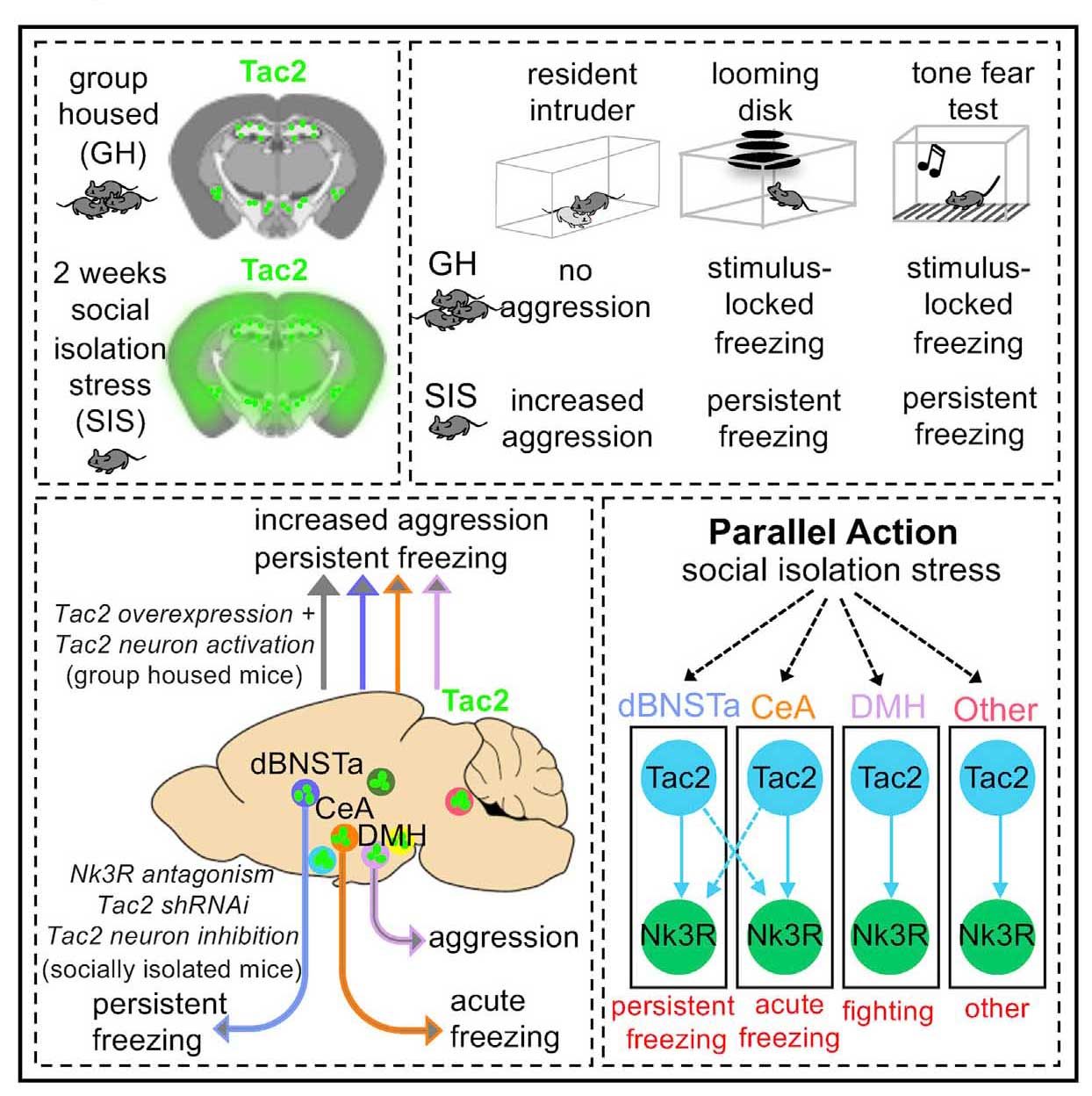在近日发表于Cell的一篇论文中,研究人员发现,长期“关禁闭”(Chronic Social Isolation)会导致小鼠脑区发生变化。研究发现,长期“关禁闭”会增强小鼠体内基因Tac2的表达,导致名为“神经激肽B”(NkB)的物质在杏仁核和下丘脑等负责情绪和社会行为的脑区中蓄积。
研究指出,在大脑中,Tac2/NkB肽所产生的不同的行为效应似乎并不是由单个主控区控制的自上而下的方式产生的。相反,这种肽在大脑不同位置导致了不同的行为变化,这种变化在长期“关禁闭”中持续存在。“
在研究中,科学家将小鼠关“禁闭”2周,结果它们出现显著的行为变化,包括对陌生小鼠攻击性增强、有持续性的恐惧表现、对威胁性刺激更加敏感。但是24小时短期“关禁闭”不会出现显著的行为变化。研究人员使用治疗精神分裂和躁郁症的药物奥沙奈坦阻断NkB的功能,可让行为异常的小鼠恢复正常。
论文摘要:Chronic social isolation causes severe psychological effects in humans, but their neural bases remain poorly understood. 2 weeks (but not 24 hr) of social isolation stress (SIS) caused multiple behavioral changes in mice and induced brain-wide upregulation of the neuropeptide tachykinin 2 (Tac2)/neurokinin B (NkB). Systemic administration of an Nk3R antagonist prevented virtually all of the behavioral effects of chronic SIS. Conversely, enhancing NkB expression and release phenocopied SIS in group-housed mice, promoting aggression and converting stimulus-locked defensive behaviors to persistent responses. Multiplexed analysis of Tac2/NkB function in multiple brain areas revealed dissociable, region-specific requirements for both the peptide and its receptor in different SIS-induced behavioral changes. Thus, Tac2 coordinates a pleiotropic brain state caused by SIS via a distributed mode of action. These data reveal the profound effects of prolonged social isolation on brain chemistry and function and suggest potential new therapeutic applications for Nk3R antagonists.

发表回复
要发表评论,您必须先登录。